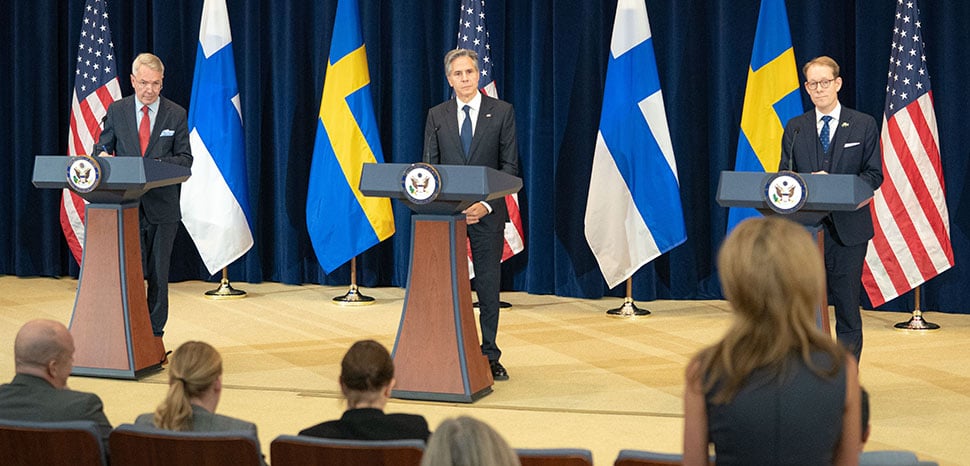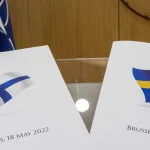Introduction
For decades, Sweden has been known for its neutrality, humanitarian policies, and global diplomacy. In 2025, the country continues to play an outsized role in international politics despite its relatively small population. From peace negotiations and human rights advocacy to its evolving role in NATO and the European Union, Sweden’s influence is felt across continents.
This article explores Sweden’s political stance in 2025, how it balances neutrality with global engagement, and what its role means for both Europe and the broader world.
A Legacy of Neutrality
Sweden’s political identity has long been tied to neutrality. Since the early 19th century, it has avoided major military conflicts, maintaining a position of nonalignment while focusing on diplomacy. This tradition has given Sweden credibility as a mediator in international disputes, from the Cold War to modern conflicts in the Middle East and Africa.
In 2025, however, neutrality is being redefined. Global tensions, particularly in Eastern Europe and the Arctic, challenge Sweden to adapt while holding onto its legacy of peacebuilding.
Sweden and NATO: A Careful Balance
Although Sweden formally joined NATO in the mid-2020s after Russia’s actions in Eastern Europe escalated security threats, the country continues to balance its defense commitments with a strong preference for diplomacy. Its membership is seen as a pragmatic step to strengthen security while maintaining its values of de-escalation and cooperation.
Sweden now contributes to NATO missions, particularly in cyber defense and Arctic security, while pushing for restraint and peaceful dialogue wherever possible. This dual role—committed partner yet vocal advocate of diplomacy—enhances Sweden’s credibility in the alliance.
Humanitarian Leadership
Sweden remains one of the most generous countries in terms of foreign aid. In 2025, it dedicates a significant percentage of its GDP to international development, refugee support, and humanitarian relief. Swedish agencies play leading roles in responding to crises in Africa, the Middle East, and Southeast Asia.
This commitment strengthens Sweden’s image as a country that prioritizes human rights and solidarity, even as many larger powers cut back on aid spending.
The Arctic Frontier
Climate change has made the Arctic a new arena for global politics, with countries competing for resources, shipping routes, and influence. Sweden, as part of the Arctic region, plays an important role in shaping environmental policies and regional cooperation.
In 2025, Sweden advocates for sustainable development in the Arctic, resisting pressure to exploit oil and gas reserves while promoting renewable alternatives. Its balanced approach positions Sweden as a key player in Arctic diplomacy.
EU Engagement
As a member of the European Union, Sweden contributes to shaping Europe’s collective policies on trade, migration, and climate. In 2025, Sweden is pushing the EU to take stronger stances on human rights abuses abroad while also urging unity on green transitions and digital innovation.
Sweden also acts as a bridge between northern and central Europe, emphasizing cooperation across diverse EU member states.
Peace Mediation Efforts
Sweden’s long-standing role as a mediator continues in 2025. Swedish diplomats are involved in negotiations in conflict zones, leveraging the country’s neutrality and reputation for fairness.
In recent years, Sweden has hosted talks on conflicts in Africa and facilitated dialogue between rival groups in the Middle East. These efforts reinforce its position as a nation that prefers compromise to confrontation.
Global Challenges and Sweden’s Response
Sweden is not immune to global challenges such as cyber threats, terrorism, and migration crises. Its response is to combine security with compassion, investing in digital defense while continuing to offer asylum and support for refugees.
This balanced approach strengthens Sweden’s global standing, though it also brings political debates at home about how much responsibility the nation should take in an increasingly volatile world.
Influence Beyond Borders
What makes Sweden unique is its ability to influence far beyond its size. Whether through environmental leadership, humanitarian aid, or conflict mediation, Sweden consistently punches above its weight in global affairs.
This influence is amplified by its soft power—Swedish culture, music, design, and progressive values reinforce its political messages, making the country a respected voice in international debates.
FAQs
Is Sweden still neutral in 2025?
Sweden’s neutrality has evolved. While it joined NATO for security reasons, it continues to emphasize diplomacy, peacebuilding, and humanitarian work as core aspects of its foreign policy.
How does Sweden contribute to NATO?
Sweden participates in NATO missions, focusing on cyber defense, Arctic security, and joint military exercises, while advocating for dialogue and restraint.
What role does Sweden play in humanitarian aid?
Sweden is one of the world’s largest donors relative to its economy, providing aid for refugees, development projects, and crisis responses worldwide.
Why is the Arctic important for Sweden’s politics?
As climate change opens Arctic routes and resources, Sweden pushes for environmental protection and sustainable development, resisting large-scale fossil fuel exploitation.
How does Sweden influence global politics despite its size?
Through diplomacy, humanitarianism, environmental leadership, and soft power, Sweden shapes debates and builds coalitions, extending its influence internationally.
Conclusion
Sweden’s role in global politics in 2025 is a careful balance of neutrality, diplomacy, and security commitments. By joining NATO while championing peace, investing in humanitarian aid, and leading on climate, Sweden continues to embody the values of responsibility and cooperation.
Though challenges remain—from Arctic tensions to migration crises—Sweden’s influence demonstrates that small nations can play big roles when guided by principle and persistence. Its legacy of neutrality has transformed into a modern form of global engagement, ensuring that Sweden remains a respected and vital player on the world stage.






